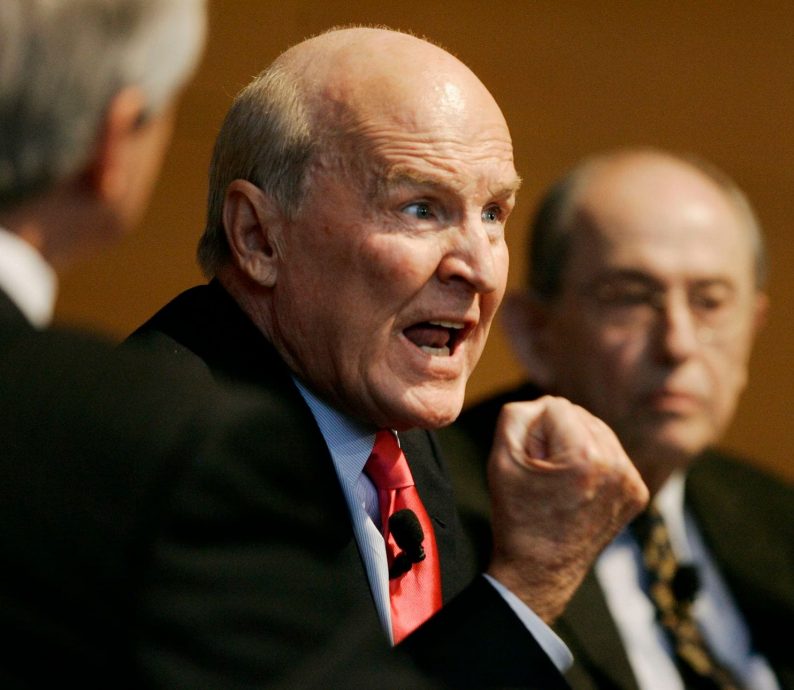Roger Lowenstein has a very good piece in the Post about GE’s (GE) hiring of a new CEO after the prior one served less than a year.
The (Expensive) Lesson GE Never Learns
By Roger Lowenstein, October 12, 2018

The executive pay problems at GE date to Jack Welch, whose tenure showed that pursuing a series of short-term managerial goals was not a ticket to enduring prosperity for GE. (Brian Snyder/Reuters)
How about a #MeToo movement for executive compensation?
No joke. Corporate America has abused shareholders for too long. They have made a mockery of fairness, taste and responsible capitalism.
They have no more idea of proper incentives than Harvey Weinstein had of employee relations.
Their unceasing grabbing of tens of millions of other people’s (their shareholders’) money bespeaks a single phrase: the arrogance of power. They need a reset.
General Electric brought this to mind — the company that just, and for the second time in a year, replaced its CEO. It hired Lawrence Culp, a former CEO of Danaher, as chief executive. Without blushing, GE awarded Culp a contract that could be worth $300 million over the next four years. Even for mediocre performance, Culp should take home $85 million. If those numbers don’t shock you, you have been spending too much time reading the business pages.
Wall Street has nothing but cheers for Culp’s contract. Much of his compensation will be tied to the performance of the stock. CNBC’s Jim Cramer said, “It’s the best performance-oriented contract I’ve ever seen.”
But history is replete with companies that rewarded CEOs for achieving short- and medium-term goals and that didn’t, in the long term, realize gains for investors. GE is a prime example.
Continue reading at The Washington Post.
According to Lowenstein, the new CEO’s contract will give him incentives worth $300 million over the next four years if he does well by the shareholders. He will walk away with $75 million if he does poorly. This follows the hiring of an inept CEO who was dumped in less than a year and long-term CEO Jeffrey Immelt, who pocketed hundreds of millions of dollars during his tenure while giving shareholders returns averaging 1.0 percent annually, according to Lowenstein.












Leave A Comment